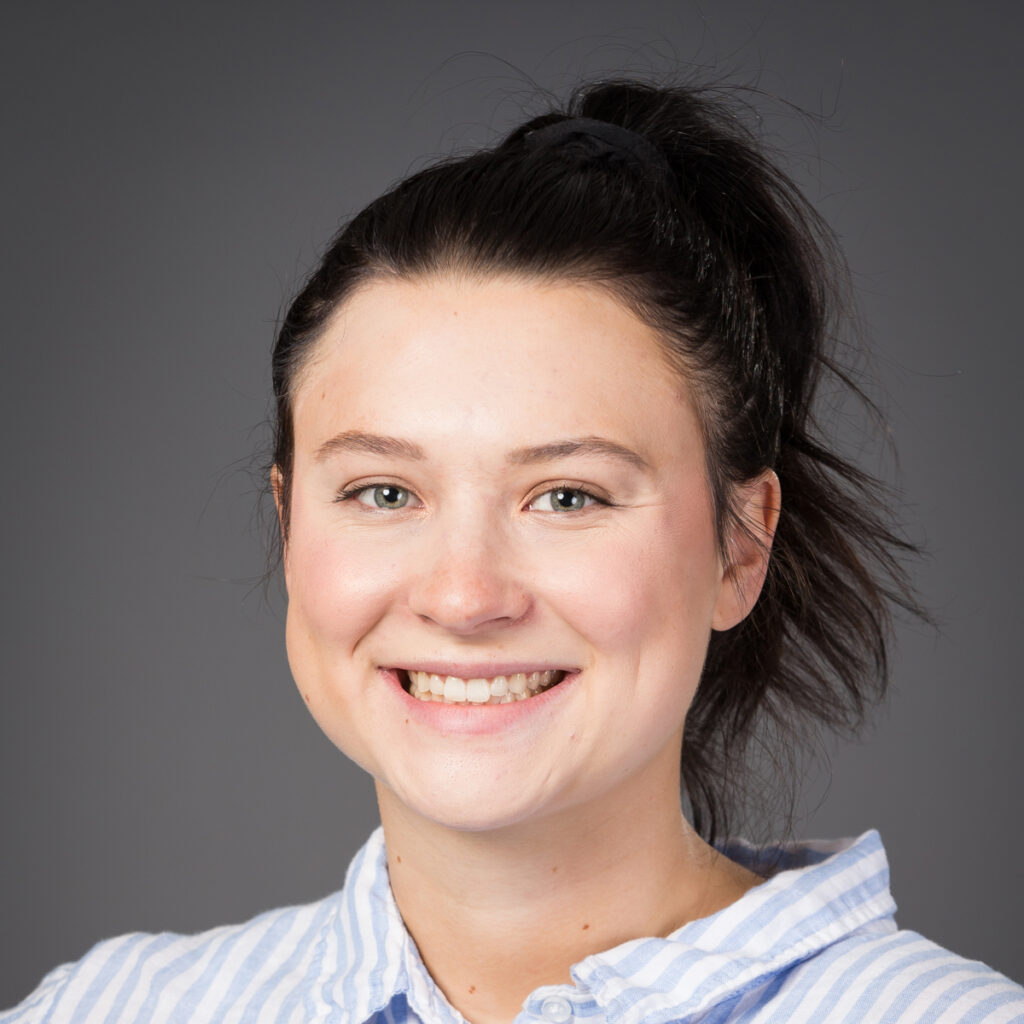
Article
May 24, 2023
Written by Brenda Gillen
Graduate Student Leverages the Power of Play to Support Kids’ Health
Danielle Belcher spent her teenage years in Arvada, Colorado. When the former gymnast searched for an in-state college, she found the University of Northern Colorado, where she earned a bachelor’s degree in Exercise Science. Now she’s a first-year student in the Sport and Exercise Science master's program.
Danielle Belcher spent her teenage years in Arvada, Colorado. When the former gymnast searched for an in-state college, she found the University of Northern Colorado, where she earned a bachelor’s degree in Exercise Science. Now she’s a first-year student in the Sport and Exercise Science M.S. program.
“The Social Psychology of Sport and Physical Activity concentration merged all of my interests in biology and the human body, sports psychology and research into one. It was exactly what I wanted to do. And since I already had good relationships with a lot of the professors, I felt it was the best opportunity to continue my education at UNC,” Belcher said.
Under the supervision of Megan Babkes Stellino, a professor in the Department of Kinesiology, Nutrition, and Dietetics in the College of Natural and Health Sciences, Belcher is the project coordinator for a grant-funded research study focused on evaluation of the ‘Play Equity’ and Playworks Colorado/Aurora Public School (APS) District partnership. Playworks is a national nonprofit that leverages the power of play through school recess and other school-based opportunities to transform children’s social and emotional health.
“Danielle and I have a nice, respectful, easy and often frequent, productive nature of communication. The work she’s doing requires substantial collaboration with nine different schools, other research assistants and collaborators at another university. Then, there’s organization around data collection, data entry, preliminary data analyses and summary reports. So, there are a lot of touch points she’s in charge of to make this research project work, and she’s relatively unfettered about it,” Stellino said.
Belcher has been in charge of the entire project’s data collection and organization as well as involved in visits to the elementary schools quarterly to gather data for Playworks/APS research evaluation. The data collection methodology includes observations, surveys, interviews, and focus groups.
“For the observations, two people watch the kids play at recess. We see what they do, whether the adults are interacting with the kids, and if there’s any conflict. We’re trying to assess if there is equity at recess. Surveys ask the kids questions to get at things like attraction to physical activity, social emotional regulation, feelings of discrimination, safety — all those things that are touched on in the research,” Belcher said.
Belcher noted that recess is a critical time when kids in school have the opportunity for physical activity and social and emotional growth. What’s learned during those school visits is mined for useful information shared in reports for school principals and Playworks. When schools address inequities, it provides a better recess experience for kids and makes everyone feel included.

“There are so many things we’ll take from this research that we’ll be able to present at conferences to give information on what inequities may exist at recess and how teachers can help. Having this information on why kids are or aren’t playing at recess can be powerful. Because everyone wants happy, healthy kids,” Belcher said.
She said Stellino’s support has been constructive throughout her research.
“Sometimes in this type of research, difficult things come up. One of the problems I ran into is the survey is long and reading intensive. I couldn’t get students at one school to fill it out. Dr. Stellino gave me guidance and helped me realize that in research not everything’s perfect,” Belcher recalled.
While, more broadly, her work aims to advance knowledge in the field by revealing insights into play equity in the recess environment, her niche within the larger project is focused on how body perceptions impact equity.
“I plan to use some of this research for my thesis. I want to look into whether play equity based on body size affects whether children would like to participate in physical activity or not,” Belcher said.
After graduating from the master’s program, Belcher plans to pursue a Ph.D.
“Then I’d like to go into academia and continue doing research around social-emotional factors that influence childhood obesity,” she said.



